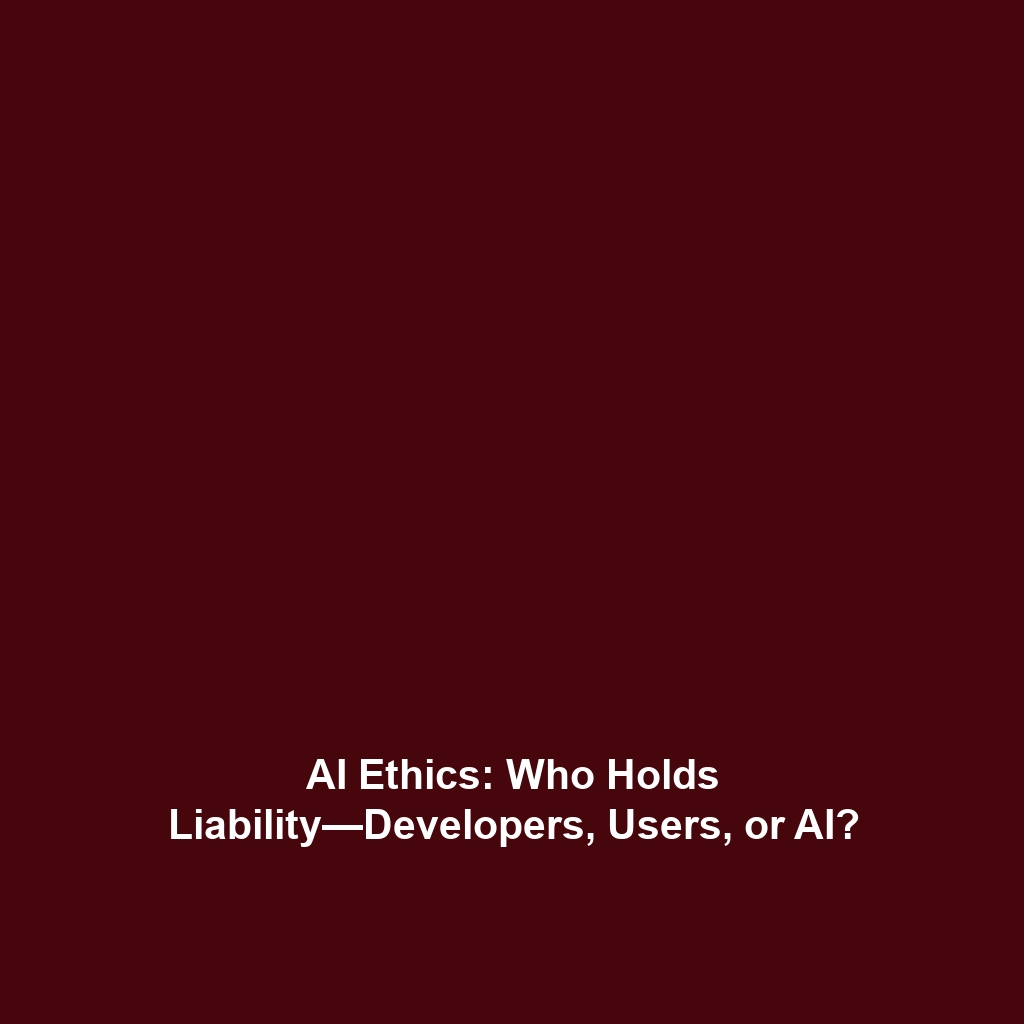Who is Liable: Developers, Users, or the AI System Itself?
The question of liability in the realm of artificial intelligence (AI) ethics is a crucial issue that has profound implications for developers, users, and society at large. As AI systems become increasingly autonomous and integrated into everyday life, understanding who bears responsibility for their actions is essential. This discussion not only informs ethical standards but also shapes regulatory frameworks and accountability measures. In this article, we will delve into the intricacies of liability concerning AI technologies, emphasizing its significance within the broader context of AI ethics.
Key Concepts in AI Ethics
AI ethics encompasses a wide range of concepts, and understanding liability is fundamental. The major principles that underlie the question of who is liable in the context of AI include:
- Agency and Accountability: Identifying who is responsible—developers, users, or the AI system itself—raises questions about agency and accountability.
- Ethical Responsibility: Developers design and deploy AI systems, while users interact with them. Each has a role in ensuring ethical outcomes.
- Autonomy of AI Systems: As AI systems become more autonomous, the debate over liability further intensifies, complicating traditional notions of responsibility.
These concepts are vital in shaping discussions around AI ethics and help clarify how these issues affect society as a whole.
Applications and Real-World Uses
The implications of who is liable in AI systems have manifested in various real-world contexts. Key applications include:
- Self-Driving Cars: In incidents involving autonomous vehicles, questions arise about whether liability falls on the manufacturers, software developers, or the vehicle itself.
- AI in Medicine: When AI is used to diagnose diseases, the responsibility for errors could be attributed to the developers of the software or the healthcare providers using it.
- Smart Assistants: Ethical concerns arise when these systems inadvertently produce biased or harmful responses, igniting debates over who is accountable.
These examples illustrate the diverse applications of the liability debate within the realm of AI ethics.
Current Challenges in AI Liability
Studying the question of liability in AI poses several challenges, including:
- Legal Frameworks: Existing laws may not adequately cover the nuances of AI liability, leading to ambiguity in responsibility.
- Technological Complexity: The sophisticated nature of AI systems makes it difficult to trace actions back to specific developers or users.
- Ethical Standards: Variations in ethical standards across cultures complicate the establishment of universal liability rules.
These challenges must be addressed to create effective policies surrounding AI and ethics.
Future Research and Innovations
Future research into the liability associated with AI technologies is imperative. Innovations likely to shape this landscape include:
- Accountability Protocols: Development of standards and protocols that clearly outline the responsibilities of developers and users.
- Enhanced Transparency: Future AI systems may incorporate features that enhance transparency, aiding in the determination of accountability.
- Regulatory Frameworks: As AI continues to evolve, so too must the regulations governing its use, potentially leading to new legal standards for liability.
Conclusion
The question of who is liable in the context of AI—developers, users, or the AI system itself—remains a complex issue within AI ethics. Understanding the implications of this debate is crucial for ensuring responsible AI development and deployment. As we navigate these waters, stakeholders must engage in dialogue and seek solutions that promote ethical considerations in AI technologies. For further exploration, consider checking our resources on AI Ethics and Responsibility in AI Development.
